The Gift
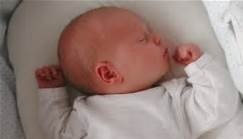
July 4, 1976, was an exciting day for us. It was the 200th birthday of our country, and all seemed well. Our day began with quiet anticipation and ended with a warm embrace in the early hours of the morning. We were planning another child; although, I knew my husband’s illness had a stronger hold on his life than he did. Our warm moments were growing further and further apart as he struggled with his demons.

Three weeks later the burning started in the pit of my stomach. From the moment I woke in the morning until the time I went to bed, I sipped milk, chewed Rolaids; anything to calm the acid in my stomach. Stress, I thought. The days passed, and the burning persisted until it drove me to the doctor’s office. Fearing an ulcer, he ordered an upper GI series. I remember laughing when he asked me if I was pregnant.
“Fat chance,” I said. They X-rayed my upper abdomen for nearly an hour.
Two more weeks passed….
My sister came home from California, and we went out for breakfast.
“God, I wish I could eat eggs,” I said. “I love that taste.”
“Why not, Sis? Go for it,” she said, a grin slashing across her face.
Since the birth of my only child, eggs had made me nauseous. I had craved the flavor of eggs enough that I had tried more than a few times to get through them, only to fail miserably each time. Bacon had only finished off what eggs had started.
I looked at her for a moment; elbow on the counter with my cheek riding down the hand it rested on, and then ordered the special: three eggs over-light, bacon, hash-brown potatoes, and raisin toast. I chugged a glass of milk before it came to ward off my expectations.
Breakfast came, and to my delight, the yellow dripping off the end of my fork rippled pleasure through my taste buds. Nausea failed to attack. Even the burning gave me respite. I savored every bite and wished I had room for more. We laughed and talked about how funny it would be if the reason I could eat eggs was because I was again pregnant. It was a fine breakfast.
Another week passed…
It was early evening when I came home. My husband rummaged through the carload of goodies I had brought home from the grocery store looking for his chosen favorites he knew I always bought for him.
“Hun?” he said, his brow furrowed. “You’ve got three jars of pickles here. When’s the last time you bought pickles?”
My mother had harped on me so often about salt intake during my last pregnancy that I had slowly introduced my family to a no-sodium salt product. Pickle brine is laden with sodium, and I had continued the practice after the birth of my first child. The last time I had bought pickles was three years earlier – when I was pregnant. I had thought it was a coincidence then, and I had laughed. Now my face wore a mask of disbelief.
“No, it’s not possible,” I said.
My husband’s voice lilted from high to low do with the last word in each sentence. “I don’t kno-o-o-w-w. You’d better che-e-e-e-ck.”
A chill moved through me as I recalled my visit to the doctor weeks before. “Nick, I had X-rays. I had lots of X-rays.” My legs turned to rubber, dropping me into a chair. We had only been able to make love a few times in the last several months. It’s just a coincidence, I told myself. It isn’t possible.
But memories of the beginning weeks of my first-born’s entry into my body came flooding back. Heartburn had plagued me then, too. It was hard to sleep that night. As if on cue, I greeted the sun with morning sickness, and I knew the truth.
I waited anxiously for my obstetrician’s office to open to undergo a pregnancy test. (This was before those neat little pregnancy dipsticks) It was positive. An appointment was set up for the next day to discuss potential problems. Development could be retarded in any one of a number of organs. After the appointment, given my options, I made my decision. My child would live. There would be no abortion.
Months passed by uneventfully. The child within me grew strong, and even the doctors became confident the baby was healthy. I tucked away my fears, moving through the days until I woke one day to severe cramping. I was at least a week overdue. I called my doctor. My husband was working, so my maid-of-honor and I waited for my contractions to level out to six-minutes apart. The time came for her to drive me in, and I signed myself into the hospital.
We figured the birth would take a while. My husband would come to the hospital when it was time. Nine hours later, my contractions became erratic. They were getting ready to send me home when the doctor arrived. After making a final check to see how the birth was progressing, he declared I was sufficiently dilated. He broke the amniotic sac.
All other mothers had delivered, leaving me alone in a ward cloaked in haunting silence. The nurse turned out the overhead light and left the room. Fourteen-minutes later, I called out to her to tell her I was ready. She chuckled and said, “You have a ways to go yet.” After a brief discussion over who was right and a check of my child’s front door, she scrambled from the room to call the doctor. He had left the hospital to go home.
On April 14th, 1977 at 12:29 AM, after a breezy, natural delivery, the doctor handed my beautiful son to a waiting nurse. She carried him to the dressing table where she began clearing the fluid from his lungs. As I watched her, I couldn’t help thinking, his breathing isn’t right. She swaddled him in a blanket, laid him in my arms, and shot a hard look at the other nurse. I ignored the subtle communication, cuddled my son for a bit, and handed him back to the nurse. She scurried from the room with my son in her arms. I was too exhausted and exhilarated to believe anything was wrong.
I stayed in my self-wrought, protective bubble well into the next morning. An overflow of new mothers had placed me on the sun porch with the woman I had spent the preceding day with, groaning away our labors together. A nurse brought in her baby for feeding, and we gushed over her while I waited for my son.
A half-hour later, I wandered down the hall to ask about my child. I looked at the nurses at the desk and saw them turn away from me when our eyes met. Some of them acted as if they had just remembered important tasks. Another threw her gaze down on the desk behind the counter when I approached her.
Most of the overflow babies had been brought to the special nursery located across from the regular nursery. Pressing my face to the glass, I saw several people milling around a child on a warming palette. He had a minute set of oxygen tubes reaching into his nostrils, the smallest of IVs in the veins in his head, and some sort of catheter in his umbilical area. His tiny arms were strapped into place on the cool-green palette, which looked to be perfectly fitted to his body.
All the enthusiasm drained from my body. As I stared at the child, I heard whispers through the glass as the doctor asked about the mother. A nurse looked up, her eyes growing wide before locking on mine, and she nodded in my direction. The doctor, a tall, elderly man in a gray business suit, whipped around, saw me and shouted to the nurse. “What is she doing out there?”
The nurse made her way to the door – and to me. “Come on. Come with me.”
“No. I’m not going anywhere until you tell me that’s my baby.”
“It is. Now come with me, and we’ll talk about it,” She murmured.
My son had Hyaline Membrane Disease: a condition in which the lining of the lungs protecting a fetus’ lungs from amniotic fluids does not dissolve properly before birth. He could not take in enough oxygen to sustain his life. He was on 42% oxygen at the moment and in great distress. If he survived for the next thirty-six to forty-eight hours, he had a good chance for a normal life. They would let me in to visit him as soon as people cleared out of the room. The doctor would talk to me soon.
The next few hours were a nightmare. I learned from the doctor that my son was a fighter. He had a good chance of making it through this critical time, but that they really would not know anything until they started seeing some improvement. He had some congestion in the left lung, but it wasn’t anything to worry about.
I spent all the time I could standing on my feet next to his pallet, holding his tiny hand and lightly stroking his pulsing chest. I hid the tears slipping down my face as I crooned to my child, letting him know I was there. I counted his toes and fingers, trying to draw myself into a world where he wasn’t sick. I wanted to gather him to me, but the straps on his arms restrained me. There was something no one needed to tell me: I quietly urged my son not to collapse his congested lung.
My husband spent as much time as he could with me that evening. Father Andrew came to baptize our baby. My brother-in-law became his godfather. It was an experience: standing in the special nursery with our yellow paper gowns, matching booties and caps; planning for the end of a small life that was so close to its beginning.
My husband and I sat together, holding each other’s hands in silence, not knowing how to breach the wall of pain between us. We were wounded, but it had become a private thing for each of us. Before he left, I told him to ask the nursing staff for permission to bring in our 3-year-old son to visit. I was trying to escape our baby’s possible death with the comforting knowledge that our first-born was alive and well.
They gave me something to sleep that night. I tried to close my eyes and drift away, but visions of my baby stole my sleep. I knew I needed rest. I had started bleeding heavily. I simply could not calm myself enough to rest.
The next day broke with a parade of nurses giving me all the reasons they thought my son would survive. His oxygen level was comparatively low. He was stable on 42%. They had seen babies on much higher levels survive.
“Besides that,” one nurse said. “The really sick babies don’t stay here. They’re rushed into Boston.”
Thirty-six hours passed, and the doctor strolled into my room; his face fatigued but marked with relief. “Your baby appears to be doing fine. I think we can say he is out of the woods.”
I’ll never forget those words. In less than an hour my son crashed, blowing out his left lung.
Mother Nature sometimes plays cruel jokes on young mothers. A child can be carried to term, kicking and poking his mother, and be born dead. A mother is sometimes forced to carry the remnants of life that has flickered and died for some time. But a child who kicks for nine months, breathes at birth; runs a gamut of trials, and struggles to hold on to the bright spark of life can be the cruelest joke of all. The amount of time that can pass between birth, and life or death can stretch out to months – painful months.
Nature wasn’t through with me yet, and I didn’t know how long I could keep from screaming out in pain from the wrenching in my heart. My son was to be transported to Boston.
Two men wheeled a portable incubator into my room. My husband, who had rushed to the hospital, and I gazed at our blood-spattered baby lying inside a clear, polyurethane casing. There was no way to touch him or say goodbye. His ragged breathing was the unnatural sound rather than the quiet hum of the machine keeping him alive. A tiny added tube protruded from his chest, sucking out air and droplets of blood. Tape adhering to his skin, keeping the tube in place, was blood-soaked.
I collapsed into my husband’s arms no longer able to sustain the illusion that my child would be coming home. The men wheeled him out of the room, their eyes brushing the floor rather than looking into ours, and I feared that I would never again see him alive.
As soon as my child was gone from the hospital, I began my campaign for release. My husband picked me up two days later. I insisted on dropping him off at work. I turned my car south, towards Boston’s Chinatown and Boston Floating Hospital. There, buried on a little side street lined with old redbrick buildings, I found my son on the fourth floor in a Neo-natal ICU. There was a buzzer outside the door, and I pushed it, running my eyes over each small body in the incubators.
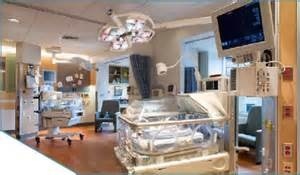
There was so much heartbreak in the room. I didn’t dare think hope lived there. I saw my son just as the door opened, recognizing him more from the designer tubing in his body than from his face. I told the nurse why I was there, already standing in the requisite gown, cap, and booties. The drill was becoming familiar.
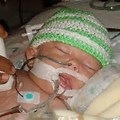
I stood next to the incubator that held my son, watching his chest flutter as if he were trying to blow out candles on a cake and couldn’t stop. I watched the nurse as she demonstrated how to use the long gloves that extended into the incubator to touch my child. I wondered if they would let me hold him when he died; if he would forgive me for not holding his beating heart against mine where it had rested for nine months. I looked at the lonely baby fighting for his life in the plastic cage and did the only thing I could: I reached for him, gloves on, and stroked his body, talking to him in low tones of reassurance.
For two weeks, I made my trips into Boston, marveling as the doctors pulled together to save the babies. I took note every time there was an empty incubator that held a child I knew had been too sick to be moved since I had left. I marveled at the doctors and nurses who had the strength and determination to bear the passings and quickly move on to the here-and-nows. Days crept by, and I watched as they removed one tube, then another – until all the tubes on my child were no longer necessary. I sat in a rocker beside his incubator and held him close for a second, third, fourth and more times since his birth. Two and a half weeks after his entrance into this world, I brought him home.
My son is a strong, healthy man today. When I hug him, my cheek rests on the scar from the chest tube decorating his chest. It is the only physical reminder of those difficult days after his birth. My husband survived to see his son pass the age of three. When I look into my son’s eyes, they are the eyes of his father. When his eyes meet mine, I am reminded never to take life for granted. It is to be treasured. It is a gift.
Copyright 1999 Joyce Bowen
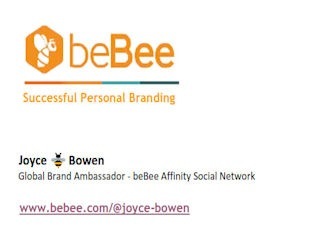
https://www.linkedin.com/in/joyce-bowen/
https://twitter.com/crwriter1
https://joycebowen.wordpress.com/author/joycebowen/
https://medium.com/@joycebowen
Sobre el autor: Joyce Bowen es un escritor independiente y orador público. Las consultas pueden hacerse en crwriter@comcast.net
www.bebee.com
My Patron site. Please support my work.

""""""
Articles from Joyce 🐝 Bowen Brand Ambassador @ beBee
View blog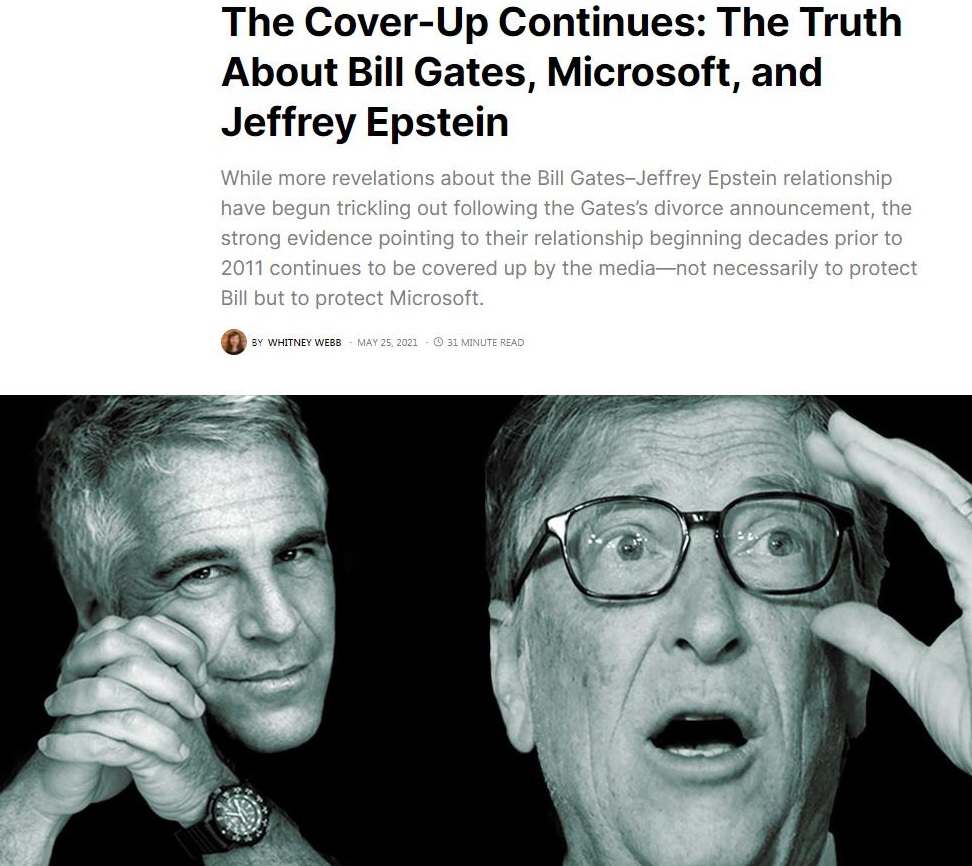
I’m a clicker. · I click links until the ‘cows come home.’ · The information Ms. Webb revealed in he ...
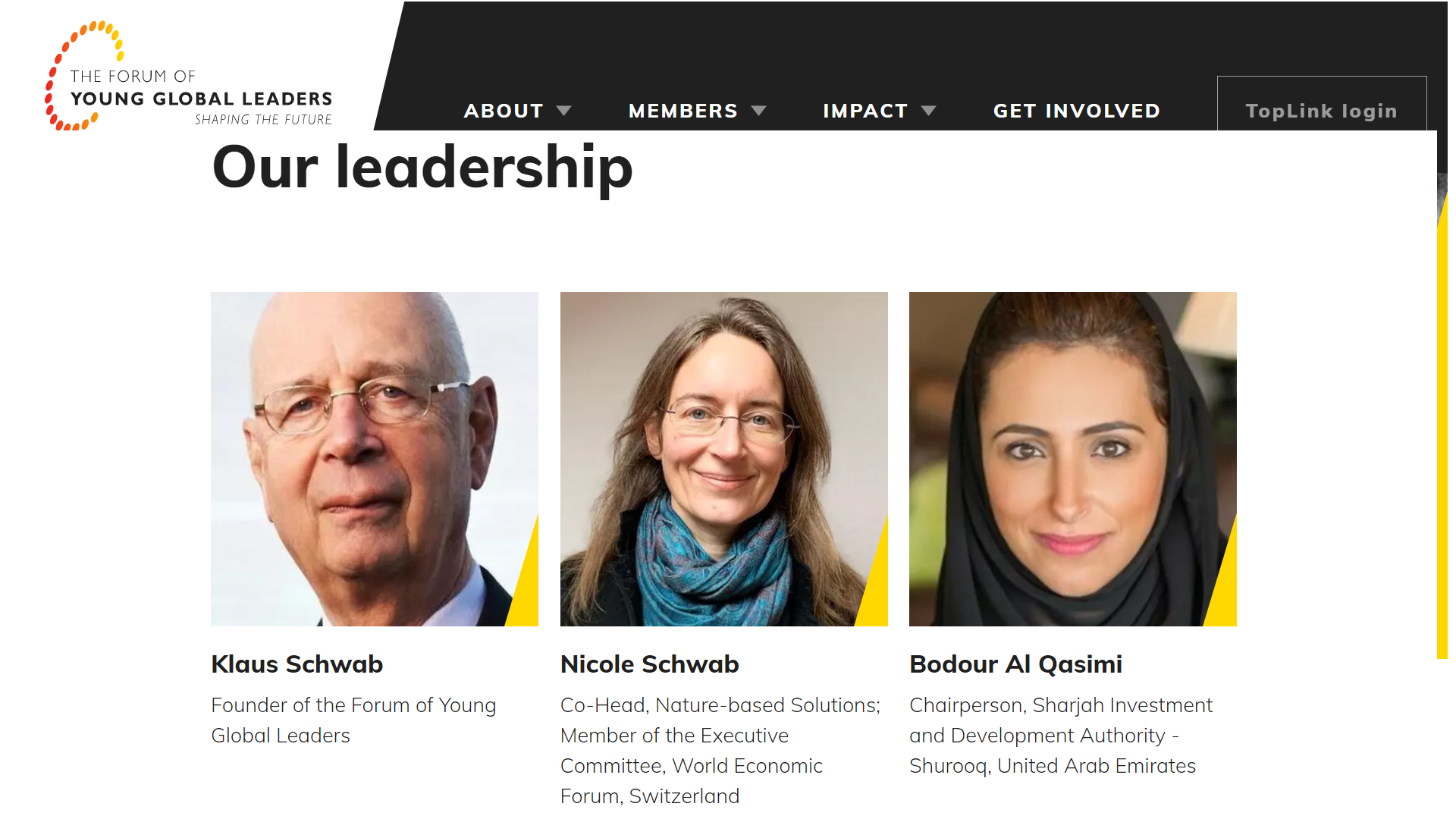
Introduction by Joyce Bowen · There are times you just can’t do it any better than it has already be ...
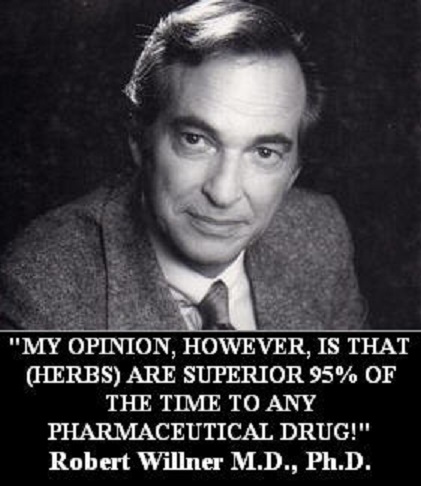
As an investigative journalist, you hear about things—and things—and things… · Many of them are hard ...
Related professionals
You may be interested in these jobs
-
The Gift Planner is a critical link in engaging alumni, parents and friends in support of the College's mission. This position will spend the majority of its time strategically developing relationships with existing and prospective donors. · ...
Waverly, IA1 month ago
-
Rosie's Place seeks a mission-driven and strategic Director of Major Gifts. · ...
Boston1 month ago
-
Mount Holyoke College is seeking a Gift Planning Officer to join our frontline fundraising team. · ...
South Hadley3 weeks ago


Comments
Joyce 🐝 Bowen Brand Ambassador @ beBee
9 years ago#14
Joyce 🐝 Bowen Brand Ambassador @ beBee
9 years ago#13
Joyce 🐝 Bowen Brand Ambassador @ beBee
9 years ago#12
Joyce 🐝 Bowen Brand Ambassador @ beBee
9 years ago#11
Sara Jacobovici
9 years ago#10
Sara Jacobovici
9 years ago#9
Agreed CityVP \ud83d\udc1d Manjit and thanks for saying it in the only way you can!
Pascal Derrien
9 years ago#8
Joyce 🐝 Bowen Brand Ambassador @ beBee
9 years ago#7
CityVP Manjit
9 years ago#6
Dear Sara [ Sara Jacobovici ] Joyce has been a breath of fresh air since her arrival because she is not an actor playing the role of difficulty and then thanking everyone for receiving an award to describe the human condition - we have become way too reliant on proxies to broach subjects from I guess people would call "a safe distance". I have already noted Joyce as a person who has fully experienced the unthinkable and she has this rare quality I do not see in people - which Gandhi called Satyagraha - and which is a word that is sometimes reduced to non-violence - whereas what Gandhi meant by it was far different and significant as this link provides, for in reality Satyagraha is as difficult an individual way and challenge as is Agape love which also gets reduced to unconditional love. What gets reduced is actually the practice of it. Satyagraha http://www.mkgandhi.org/articles/ramanand.htm QUOTE: "Satyagraha means the exercise of the purest soul-force against all injustice, oppression and exploitation. Suffering and trust are attributes of soul force." So what is conveyed as "non-violence" has an even more powerful meaning, which is "stand your ground". As I have interacted with every piece Joyce has written, she displays both humanity and tenacity of spirit to stand her ground when it comes down to her fight for justice. In a world where marketing is more important than meaning - the meaning in Joyce's writing is unmistakable.
Joyce 🐝 Bowen Brand Ambassador @ beBee
9 years ago#5
🐝 Fatima G. Williams
9 years ago#4
CityVP Manjit
9 years ago#3
Sara Jacobovici
9 years ago#2
Sara Jacobovici
9 years ago#1